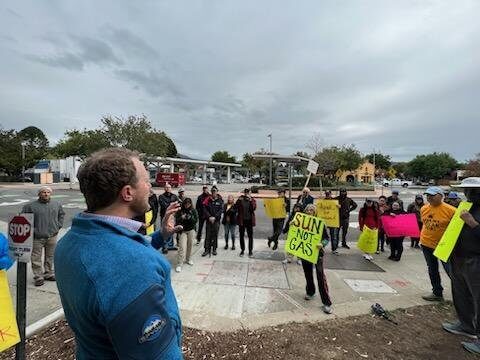DAY OF ACTION ACROSS THE STATE TO SAVE SOLAR
California—Coalitions of energy consumers, climate activists and green workers held rallies across California today, calling on the California Public Utilities Commission (CPUC) and Governor Newsom to keep rooftop solar growing and affordable.
The CPUC is considering changes to “net energy metering,” the state policy that makes rooftop solar affordable for consumers of all types by crediting them for the excess energy they produce and share with their neighbors. A proposed decision released by the CPUC in November would immediately slash net energy metering credits by 75 percent, down to between $0.05 and $0.08 per kilowatt.
The proposed changes would make solar unaffordable for most consumers, eliminate green jobs in the solar industry, and slow California’s progress towards 100 percent clean energy. A vote on the proposed decision by the CPUC is expected on December 15.
At churches, restaurants, historic plazas, utility offices and the CPUC headquarters, solar advocates held ten simultaneous events in San Diego. Los Angeles, Palm Springs, Bakersfield, Fresno, San Luis Obispo, Santa Cruz, San Francisco, Stockton, and Chico.
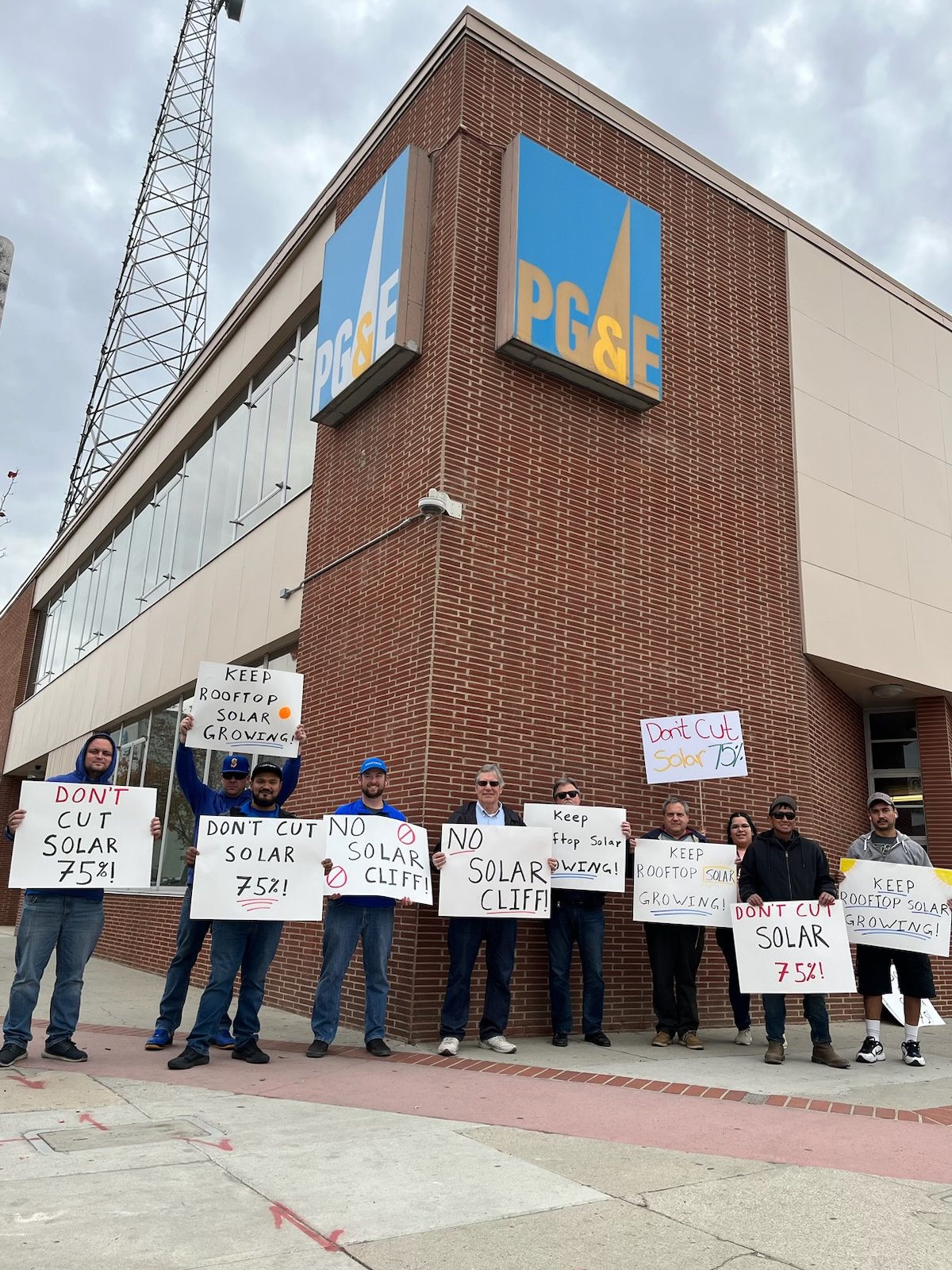
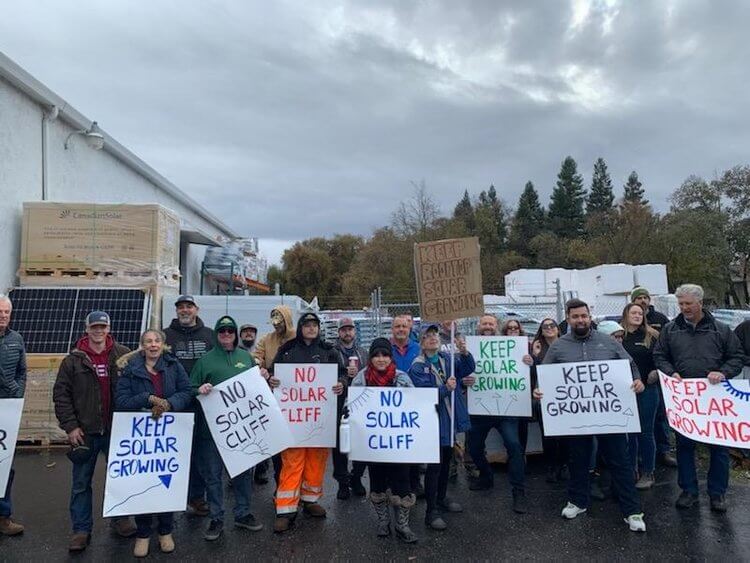
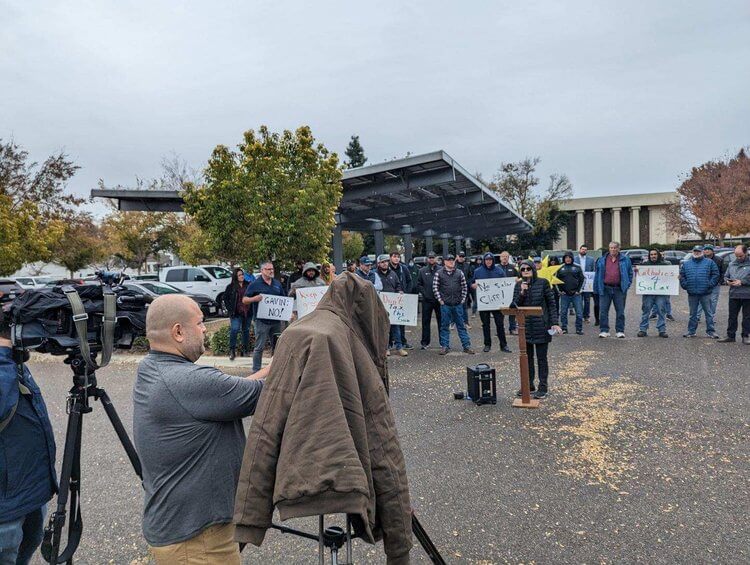
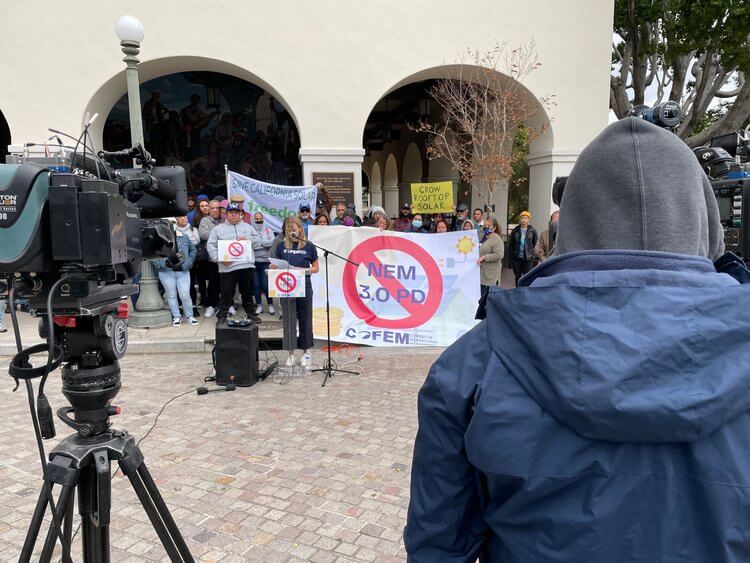

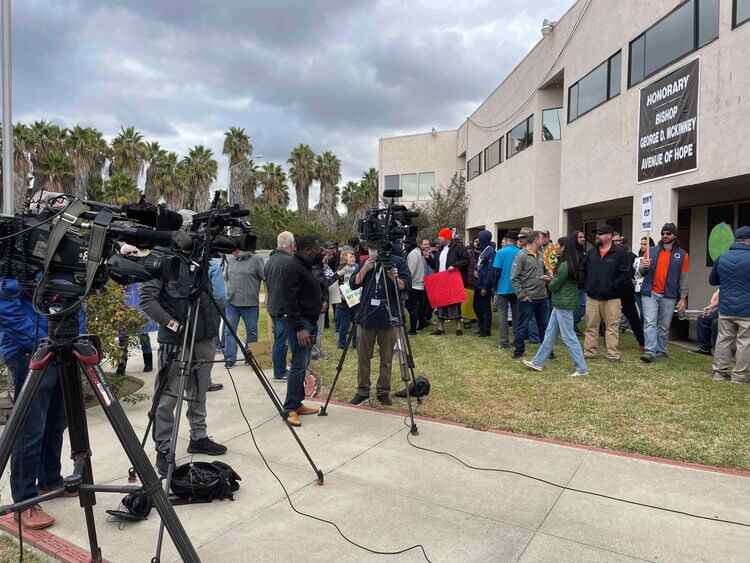

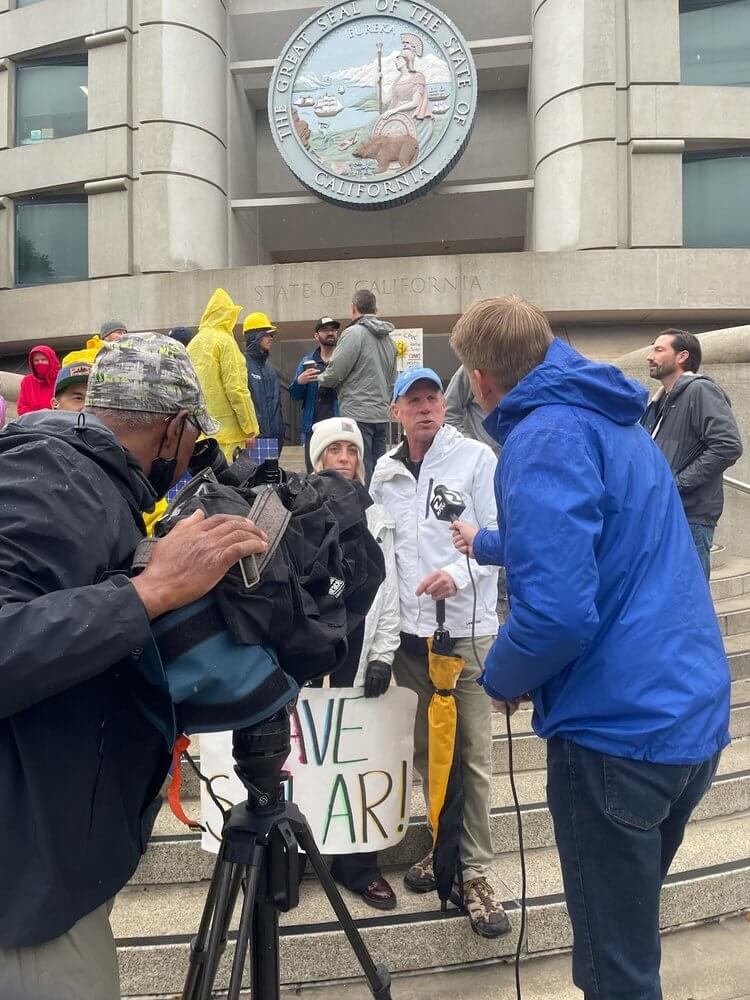
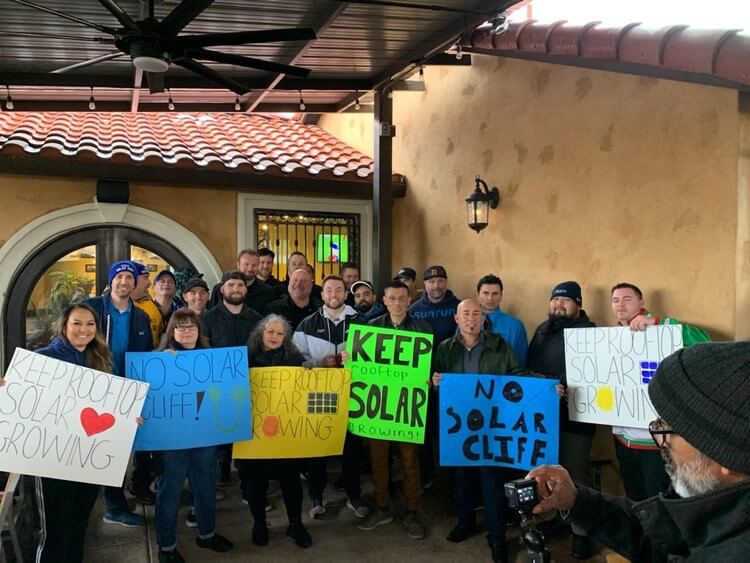
Quotes:
“Sending rooftop solar off a cliff and making it too expensive for everyday people fulfills the utilities’ dream,” said Solar Rights Alliance director Dave Rosenfeld. “It will also harm everyday Californians looking for a break from ever rising energy bills, blackouts and air pollution. This is Governor Newsom’s moment to show the public where he stands. Will he keep rooftop solar growing, or let it wither at the hands of the monopoly?”
“Rooftop solar has seen its greatest growth in Latino communities. These immigrant communities struggle monthly to pay their energy bill, especially those in the Central Valley and desert communities where summer temperatures are often over 100 degrees. Rooftop solar is a liberating technology for those families. Now PUC bureaucrats want to roll back solar incentives for our families. That’s unjust,” said Francisco Moreno, Executive Director of The Council of Mexican Federations in North America (COFEM).
“The CPUC’s proposal throws a wrench into a successful incentive program that has helped California become number one in the nation for solar production,” said Steven King with Environment California. “By discouraging everyday Californians from going solar, we put our climate, public health and energy resilience at risk. To build a clean energy future, rooftop solar is an important tool we need to keep in our toolbox.”
“Affordable energy is critical to local families. However, when we outreach into environmental justice communities, the first economic complaint of most families is the incredible portion of their income they spend on electricity and water,” said Esperanza Vielma of the Environmental Justice Coalition for Water.
“In our communities many families go without basic necessities in the hot summer months because they need to pay large electrical bills or the IOUs cut that power. Unfortunately, the CPUC’s proposal will make access to cheaper rooftop solar for our communities more expensive and out of our reach. That’s going backward,” said Destiny Rivas of the San Joaquin Urban Native Council.
“Our business is in the process of adding solar panels and backup storage because it makes economic sense. With lower monthly electric bills, we can keep our restaurant prices affordable and serve our community,” said Alicia Cardenas, the owner of Nena’s on B Street, a popular Mexican restaurant in Stockton.
Background:
Currently 1.5 million consumers use net metering, including thousands of public schools, churches, farms, and affordable housing developments, and it is the main driver of California’s world-renowned rooftop solar market. As a result of net metering, working and middle class neighborhoods are just under half of the rooftop solar market and the fastest growing segment today.
In total, distributed solar energy systems have added 13 gigawatts of solar energy to the state, roughly the size of six Diablo Canyon nuclear power plants. In addition, consumers have added nearly 1 gigawatt of energy storage which played a meaningful role in keeping the lights on during recent heat waves.
Big utilities want to change the rules in their favor in order to eliminate a growing competitor, keep consumers stuck in utility monopolies, and protect their profits. Utilities claim solar makes the energy bills of non-solar customers more expensive. But in reality, utility profits, infrastructure investment, transmission lines, and paying for their bad planning and the fires they cause are what drives energy rates up. Californians are not fooled, and real equity champions know energy fairness is about “making rooftop solar panels and batteries more—not less—affordable for working families and lower-income Californians.”
A proposed decision released in December 2022, that would have implemented an unprecedented solar tax and drastic net metering credit reductions, was shelved earlier this year after intense backlash and public disapproval from Governor Newsom. Despite that backlash and the overwhelming popularity of rooftop solar in California, the CPUC’s current proposed decision still includes an immediate and drastic slash to the value of net metering.
With rooftop solar’s vital contribution to reaching California’s clean energy goals, the promise of battery storage for grid reliability, and new federal incentives for going solar, a diverse coalition of solar supporters are calling on the California leaders to keep solar growing and affordable for all types of consumers. More than 160,000 people submitted comments to the CPUC and Governor Newsom calling for a strong NEM-3 decision, the highest count in CPUC history.
Source: Calssa.org

